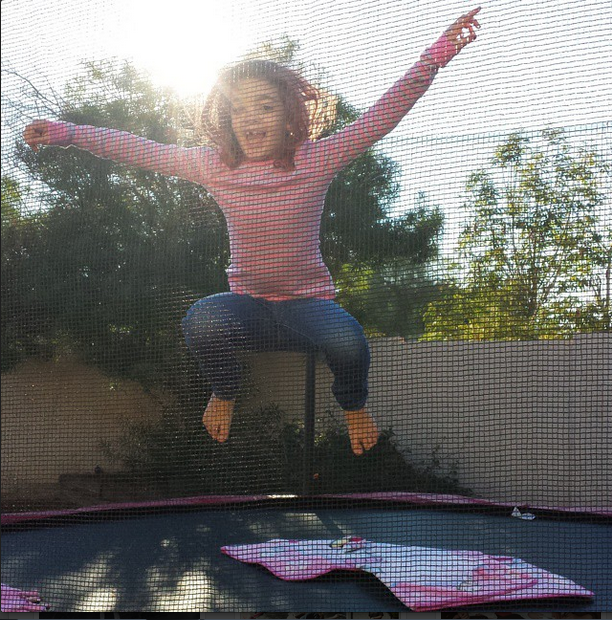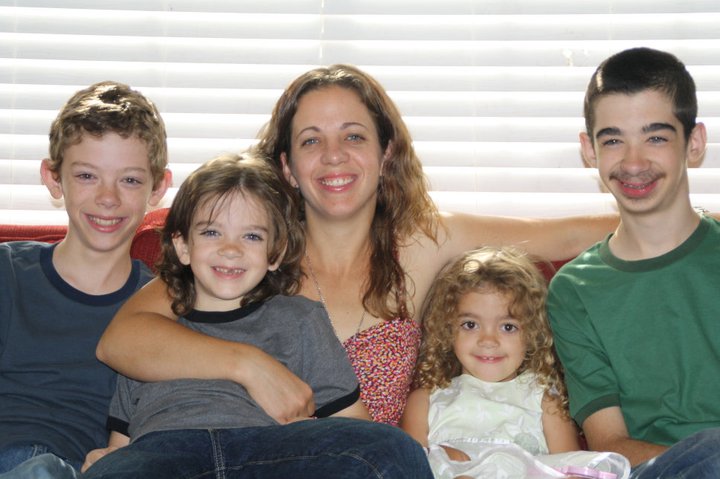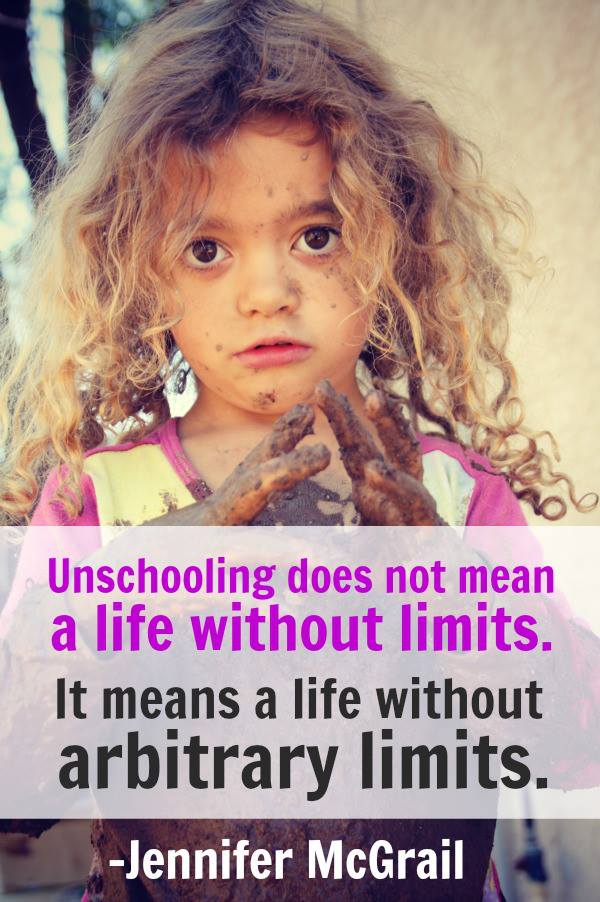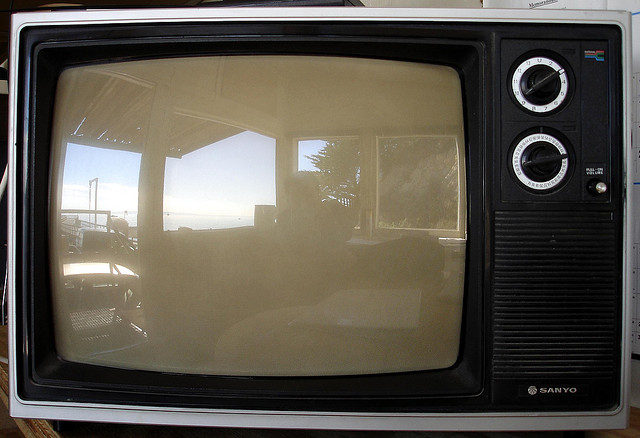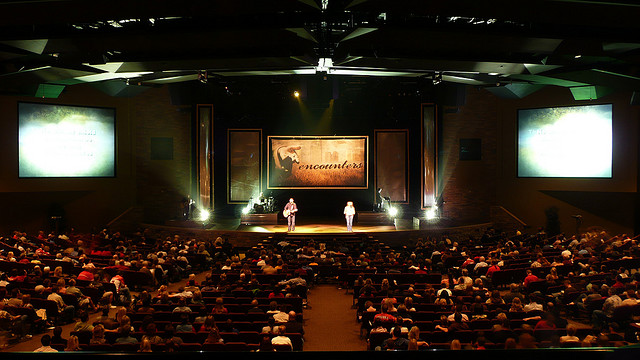
We recently started going back to church after another year-long hiatus.
I really love our church.
I say that with emphasis in part because I just honestly love it that much, and also because it is a first for me. Having gone to church nearly every Sunday for my entire life, I never went to a church that I genuinely looked forward to. Never went to a church that I felt excited about. Never went to a church that I felt compelled to share with others. Yes, there were specific people that I grew to love, and certain aspects that I enjoyed here and there… but I never truly loved a church until now (and if I’m being honest, there were churches in my past that I not only didn’t love, but that made me outright miserable) Suffice it to say, my personal church history has made me very empathetic and understanding towards those who have sworn off church altogether.
The church we attend now is a huge church. It has over 17,000 attendees over the course of its 5 weekend services. It has a sprawling campus, separate children’s and teen buildings, a rocking worship band, a bookstore, a Starbucks, a cafe, an outdoor grill… all those things that for some reason make a lot of people really really uncomfortable. Those things that make people come to a snap judgment in their head, and offer up a categorical, “Oh it’s one of those churches.” We haven’t brought anyone to church with us recently, but we have in the past. And with a few exceptions, their reactions were undeniably (and strongly) negative. Which is weird, now that I’m thinking about it, because it would never occur to me to go someone else’s church as a guest, and follow it up with anything other than a “thank you for the invitation,” let alone a critique.
A think a large part of the problem is that in many cases, people make their minds up before they even step out of the car, based on preconceived notions and often times misconceptions. We all hold these prejudices about certain things, and these so-called “megachurches” like the one we attend are seemingly high on a lot of people’s lists. They’re judged sight-unseen because they’re …. too big. Or too impersonal. Or too irreverent. Or too much like a cult. Or something. And if you go into a church – or into any new situation or circumstance – already having pre-judged it, it’s going to live up to your expectations for better or worse, every time.
The following are some of the biggest misconceptions or myths about megachurches that I hear the most often, along with my responses. I’m just asking that you keep an open mind, and if you should ever find yourself a guest of a friend or a family member at one of these churches that you enjoy it for the unique experience that it is. Remember that they have chosen to call that church home for a reason, and that they’ve chosen to invite you for a reason too (and it’s really not to bring you over to the dark side.)
1. They are impersonal.
How can you possibly make personal connections in a church with literally tens of thousands of members? You show up. You talk to people. You join small groups. You volunteer. You get involved. Even just taking the kids to their classes every week, we are starting to see the same faces, and get the same familiar greetings. The pastor is outside the auditorium every Sunday before every service, greeting members, talking to people, throwing a football with a child, just like you’ll often see happen at a smaller church. Is it possible to remain completely anonymous, go to services, and go home without having talked to a single soul? Sure (although you’d admittedly have to be pretty rude and ignore the half dozen people that say good morning to you on the way from your car to the auditorium). But it’s a choice that you are making. It’s not the fault of the church! And it shouldn’t go without saying: I have attended small churches, with maybe 30 members, and have been utterly ignored. Yes, I could have initiated conversation, but when you’re a 20-something newlywed in a mostly older congregation, it is far more hurtful and uncomfortable to feel rejected by 30 people than it is to be an anonymous member of a church of 1,000’s, where at the very least you can count on an honest and friendly “good morning,” or “good to see you” on your way inside.
2. They are irreverent.
I went to another church once where was there a huge knock-down, drag-out (not literally) over whether or not it was okay to bring tables into the room that was used for worship, so that it could also be used for pot lucks. People got so upset about it, they left the congregation. The issue? Some people felt it was irreverent to eat in a room that should be reserved for nothing but honoring God. But here’s the thing. It’s just a building. That’s true if it seats 10 or 10,000. God just wants us to come to him. He doesn’t care if we do it from a small church or a large church or a mountain top. He doesn’t care if we’re dressed in jeans or flip flops or our “Sunday best.” He doesn’t care care if we drink our overpriced Starbucks coffees while we listen to the sermon. He just cares that we showed up.
Having said all of that… The rock-style praise music that you hear at the start of the service (one of the biggest things that makes people nervous, along with the fact that people sometimes bring their coffee into the auditorium) gradually gives way to slower, more reflective songs. When it’s time for communion – which undeniably IS a time for reverence – the room is quiet, the mood is appropriately contemplative, and everyone is able to partake in the manner that he or she finds most in line with their own personal interpretation of scripture.
3. They are all flash and no substance / They focus too much on entertainment
This is an odd one to me. Yes, I enjoy the music during the first third of the service. Yes, it’s nice that they turn it into a whole “experience” with the lights and the instruments and the video screens. They have talented musicians leading the singing, and they always choose great songs with meaningful lyrics. I appreciate it. I appreciate that I’m almost always guaranteed to laugh at least once during each sermon. I also appreciate the pretty grounds, and the big expanse of lawn where all the kids play between services, and the giant cross at the top of the hill. But that’s not why I go. I go because I know I’m going to be challenged each week, every week. I know I’m going to hear a lesson that’s based not on one man’s opinion, or on tradition, but on the Bible. I know that I’m going to learn a little bit more about what it truly means to “walk the walk,” and I know that I’m going to be given a practical and applicable “take away” that’s real and relevant in my own life, right now.
Similarly,
4. They preach a watered-down, “feel good” gospel.
First, the Bible is above all else, GOOD news. If you’re going to a church that has neglected to mention that fact, then I think you’re going to the wrong church. I’m sorry, but I do. It IS good news. It’s inspiring. It’s joyful. It’s filled with grace. But that doesn’t in any way mean that all that’s taught is airy-fairy, feel-good, watered-down, spoon-fed nuggets of fluff. In fact, I don’t think I’ve ever been as challenged to grow as a Christian as I’ve been since we’ve started attending this church (and granted, that may have more to do with where I am in my own personal walk. But still) Our pastor never shies away from saying the hard things. Never neglects to give us the whole truth. NEVER fails to make me think, and think hard, about why I believe what I believe, and whether or not what I’ve always thought to be true is actually biblical. It even sometimes makes me uncomfortable, in the best way, because that’s how you grow. He preaches what we need to hear, not necessarily what we always want to hear. Last Sunday, the lesson was on materialism, one that cut incredibly close to my core. We’ve been worshiping money (albeit in a weird, opposite of materialism kind of way) and it’s wrong. I don’t know that I would have fully grasped how and why it’s wrong if I hadn’t heard that particular lesson on that particular day. And while it would always be nice to live in a carefree la-la land where I can get all worked up over money all I want, I’m now facing it. Precisely because my church does NOT preach a watered-down, feel-good gospel.
And speaking of money,
5. They cost too much money to operate / They must carry a lot of debt / They are wasteful of God’s resources.
I’ll admit, this one really, really bothers me. For many reasons. For one thing, the pastor of our church never set out to create this huge Super Church. That wasn’t his goal. He was simply heeding a personal call to evangelize. When he started this church in 1982, it met in a movie theater. As it naturally and organically grew, and they needed more and more seats, they began meeting in an elementary school, and subsequently rented other buildings until they were finally able to secure their own land and build their own building. As the church continues to grow, any time a need arises for new space or new buildings, the members all contribute their funds to make it happen. When we first started going, they were taking donations for the children’s building that our three youngest so enjoy every week. In fact we all got to write on the floor before the carpet was laid, as a dedication (which was pretty stinkin cool) The church is growing and expanding so much that they now have two campuses, and have helped start 11 other various churches as well.
When you consider that as Christians we’re supposed to be winning people for Christ, I have a hard time viewing it as anything but a GOOD thing that this church has grown to the size that it has. Churches are supposed to grow!! People are supposed to be getting out into their communities and ministering to people in need. People are supposed to be inviting their friends and family to church with them. I personally wonder more about the churches that don’t grow. The ones that struggle just to maintain their current membership year after year.
Oh, but the money!! The electricity, the lights, the water, the paper! Oh the waste! That money could be ministering to needy people in other countries.
Well, yeah, it could. And while I can’t speak for other churches of this size, the church that we attend is actually quite heavily involved in overseas missions. But the fact remains that this church is ministering to tens of thousands of people RIGHT HERE, who are then going out in to the community and ministering to tens of thousands more. That is no small thing!! Does it cost money to do it? Of course! And there are lots of people willing to step up and share that burden (or blessing, as the case may be)
6. They are churches of “convenience.”
The first time I heard this, it was in reference to the fact that there were 5 identical weekend services (although at the time there might have been only 4) But I’ve heard it in other ways too: The fact that you can go to the cafe and eat your lunch while you listen to the sermon on the big screen. The fact that the outdoor grill seating area has the Sunday morning ball games playing on its many TVs. The fact that you can sit in your PJs from the comfort of your home, and watch the video version of any sermon you happened to miss. In essence, we’re back to the spoon-fed, no-effort-on-your-part assertions from #4. Here’s my problem with that: If you’re going to minister to 17,000 people, you’re going to need to schedule different times to fit them all in. That’s not a matter of “convenience” but of practicality. Having two services on Saturday and three on Sunday gives people options, and allows them the best possible chance to get the most people to church to hear that week’s message (which, after all, should be the whole point, shouldn’t it?) As for eating in the cafe, and watching the service … well, as I said earlier, I really don’t believe God cares if we’re eating while we’re worshiping him. I actually happen to think God likes it when we’re always worshiping him… whether we’re eating or showering or paying the bills. The sports thing is a non-issue for me. I don’t watch sports. But I think it’s pretty darn cool for the people who do. I see it as nothing more than another chance to hang out with other believers, bonding over a common interest while you eat your freshly grilled frankfurter. And the video sermon at home? How awesome is it that in this day and age we have that option when we have to miss a sermon?! That’s not being spoon-fed. That’s using the technology given to us by God to further study his Word.
* * * * * * * * * *
When the Bible was written, some 3,000 years ago, there weren’t 7 billion people on the earth. There was no internet. No electricity, no running water, no sound systems, no video recording capabilities. There were no cafes, no Starbucks, and no bookstores. In other words, there is no sound biblical reason to support the flogging of a church simply because it employs any or all of the above. The Bible is silent on the specifics of modern-day worship facilities, because there was no practical need (or resources) for their existence. What is the Bible NOT silent on? Love. Joy. Peace. Patience. Kindness. Goodness. Faithfulness. Gentleness. Self-control. There are no perfect churches…. not big ones, and not small ones. But if your church is preaching – and more importantly, LIVING – these nine things, it’s on the right track, whether it has 17 members or 17,000.


